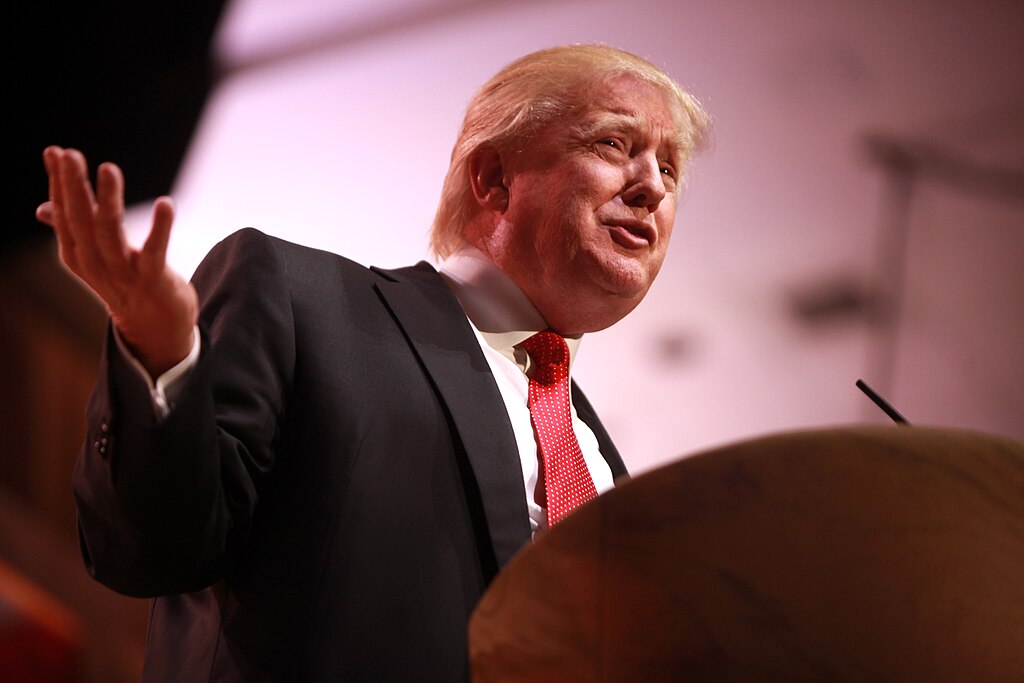Speaking at a rally in Wisconsin, former President Donald Trump pledged a sweeping crackdown on what he describes as federal efforts to limit free speech, promising to take decisive action if he wins back the White House in 2024. Trump’s fiery remarks included a vow to sign an executive order banning federal employees from collaborating to restrict speech, a move he claims will restore free expression in America.
Trump’s rhetoric on free speech has become a central part of his 2024 campaign, as he repeatedly asserts that government agencies under the Biden-Harris administration have worked to suppress voices critical of the current regime. His promise to take on what he describes as “domestic censorship” marks a continuation of his ongoing battle against what he perceives as biased actions by federal authorities, social media companies, and other platforms.
During his speech, Trump framed the issue as a direct attack on Americans' First Amendment rights. He argued that federal employees have overstepped their bounds by allegedly working with tech companies and other entities to limit the speech of political opponents and conservative figures. Trump’s proposed solution is an executive order that would prohibit any federal official from engaging in such activities and, further, to fire bureaucrats involved in what he called “domestic censorship.”
The former president’s remarks reflect growing tensions between conservatives and federal agencies over issues of free speech and the perceived role of the government in moderating content, especially online. Trump’s concerns about censorship first gained traction during his presidency and exploded after he was banned from major social media platforms following the January 6 Capitol riots. Since then, many conservatives have rallied around the belief that their viewpoints are being systematically silenced by both the government and Big Tech companies.
Trump’s pledge to purge federal employees who he says are involved in limiting speech resonates deeply with his base, many of whom view free speech as under attack. His proposal to fire bureaucrats deemed to be complicit in censorship extends his longstanding criticism of the so-called “deep state,” a term used by Trump to describe entrenched government officials whom he believes are working against him and his supporters.
However, legal experts caution that implementing such an executive order could face significant challenges. The issue of free speech, especially in relation to federal employees and their roles, is highly complex. While federal officials are restricted in their ability to engage in certain types of speech limitations, determining what constitutes censorship and what actions violate constitutional rights would likely become a matter for the courts.
Despite potential hurdles, Trump’s comments have intensified the debate surrounding free speech in America, particularly as it relates to government involvement in content moderation and political discourse. His promise to take action against those he sees as suppressing free expression is likely to remain a central theme as his campaign for 2024 moves forward.
With Trump continuing to position himself as a defender of conservative values, his focus on free speech is expected to galvanize his base and further polarize the ongoing national conversation about the limits and protections of First Amendment rights.



 Trump Floats Ted Cruz for Future U.S. Supreme Court Nomination
Trump Floats Ted Cruz for Future U.S. Supreme Court Nomination  Venezuela Oil Exports to Reach $2 Billion Under U.S.-Led Supply Agreement
Venezuela Oil Exports to Reach $2 Billion Under U.S.-Led Supply Agreement  Trump Warns Iran as Gulf Conflict Disrupts Oil Markets and Global Trade
Trump Warns Iran as Gulf Conflict Disrupts Oil Markets and Global Trade  U.S.-Iran Nuclear Talks Show Progress but No Breakthrough Amid Rising Military Tensions
U.S.-Iran Nuclear Talks Show Progress but No Breakthrough Amid Rising Military Tensions  HHS Adds New Members to Vaccine Advisory Panel Amid Legal and Market Uncertainty
HHS Adds New Members to Vaccine Advisory Panel Amid Legal and Market Uncertainty  Pakistan-Afghanistan Tensions Escalate as Taliban Offer Talks After Airstrikes
Pakistan-Afghanistan Tensions Escalate as Taliban Offer Talks After Airstrikes  Trump to Address Nation as U.S. Launches Strikes in Iran, Axios Reports
Trump to Address Nation as U.S. Launches Strikes in Iran, Axios Reports  NYC Mayor Zohran Mamdani Meets President Trump to Tackle Housing Crisis and ICE Detentions
NYC Mayor Zohran Mamdani Meets President Trump to Tackle Housing Crisis and ICE Detentions  USITC to Review Impact of Revoking China’s PNTR Status, Potentially Raising Tariffs on Chinese Imports
USITC to Review Impact of Revoking China’s PNTR Status, Potentially Raising Tariffs on Chinese Imports  Australian PM Calls Alleged Western Australia Terror Plot “Deeply Shocking” After Arrest
Australian PM Calls Alleged Western Australia Terror Plot “Deeply Shocking” After Arrest  Russia Signals Openness to U.S. Security Guarantees for Ukraine at Geneva Peace Talks
Russia Signals Openness to U.S. Security Guarantees for Ukraine at Geneva Peace Talks  ICE Hiring Surge Raises Vetting Concerns Amid Rapid Expansion
ICE Hiring Surge Raises Vetting Concerns Amid Rapid Expansion  Israel Declares State of Emergency as Iran Launches Missile Attacks
Israel Declares State of Emergency as Iran Launches Missile Attacks  Pentagon Leaders Monitor U.S. Iran Operation from Mar-a-Lago
Pentagon Leaders Monitor U.S. Iran Operation from Mar-a-Lago  Germany and China Reaffirm Open Trade and Strategic Partnership in Landmark Beijing Visit
Germany and China Reaffirm Open Trade and Strategic Partnership in Landmark Beijing Visit  Trump Floats “Friendly Takeover” of Cuba as Rubio Reportedly Engages in Talks
Trump Floats “Friendly Takeover” of Cuba as Rubio Reportedly Engages in Talks  U.S.-Israel Strike on Iran Escalates Middle East Conflict, Trump Claims Khamenei Killed
U.S.-Israel Strike on Iran Escalates Middle East Conflict, Trump Claims Khamenei Killed 































